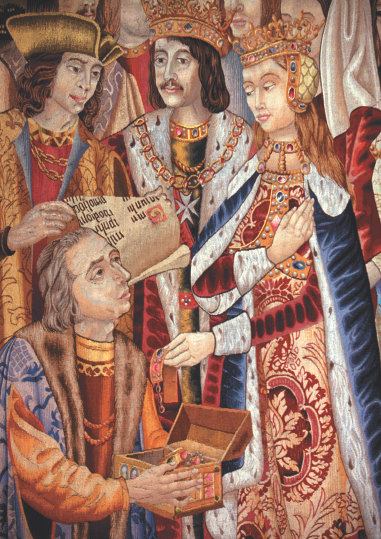Europe in the Age of Exploration

Figure false: SPANISH TAPESTRY
Figure false: This detail from a lavish sixteenth-century tapestry depicts Columbus (kneeling) receiving a box of jewels from Queen Isabella (whose husband, King Ferdinand, stands slightly behind her) in appreciation for his voyages to the New World. © Julio Donoso/Sygma/Corbis.
Printed Page 28 Chapter Chronology
Europe in the Age of Exploration
ESSENTIAL QUESTION
Why did European exploration expand dramatically in the fifteenth century?
Historically, the East — not the West — attracted Europeans. Wealthy Europeans developed a taste for luxury goods from Asia and Africa, and merchants competed to satisfy that desire. As Europeans traded with the East and with one another, they acquired new information about the world they inhabited. A few people — sailors, merchants, and aristocrats — took the risks of exploring beyond the limits of the world known to Europeans. Those risks could be deadly, but sometimes they paid off in new information, new opportunities, and eventually the discovery of a world entirely new to Europeans.